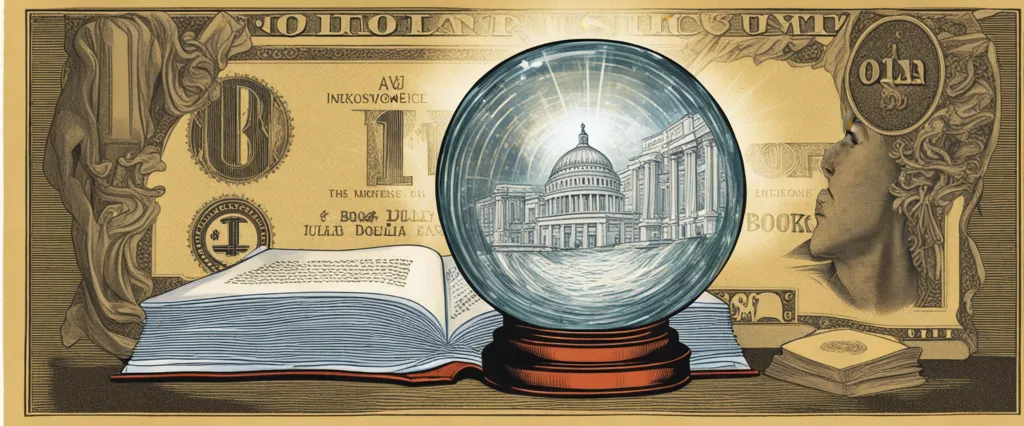——Poor Economics by Abhijit V. Banerjee & Priceless by William Poundstone

In the realm of economics, scholars and researchers have aimed to understand and address some of the world’s most pressing socioeconomic problems. Abhijit V. Banerjee’s “Poor Economics” and William Poundstone’s “Priceless” each contribute to this endeavor, shedding light on the complexities of poverty, decision-making, and the value we assign to goods, services, and experiences.
“Poor Economics” delves into the lives of the world’s poor, presenting a meticulous analysis of how their behavior and decision-making differ from traditional economic assumptions. Written by Nobel laureates Abhijit V. Banerjee and Esther Duflo, this thought-provoking book argues that the reasons behind poverty are more multifaceted than previously believed. Through a combination of empirical evidence, field studies, and rigorous research methods, Banerjee and Duflo unravel the complexities of poverty, identifying innovative solutions to alleviate it effectively.
Contrasting with “Poor Economics,” William Poundstone’s “Priceless” delves into a different aspect of economic decision-making: the inherent challenges of valuing goods and services. Poundstone explores the intriguing world of how we assign value to almost everything in our lives, from products on supermarket shelves to public goods like the environment and healthcare. Drawing upon psychological and behavioral economics research, “Priceless” uncovers the fascinating biases that influence our perception of value and decision-making processes.
As both “Poor Economics” and “Priceless” strive to uncover crucial truths about the human behavior behind economic phenomena, this comparative study will explore the unique perspectives and contributions of each book. By delving into their methodologies, central arguments, and key findings, we will gain a comprehensive understanding of how these works differ in their approach to economic analysis while simultanesouly identifying any commonalities or overlaps.
Through this comparative study, we hope to unveil the ways in which “Poor Economics” and “Priceless” contribute to the broader economic discourse by shining a light on the multifaceted challenges faced by individuals, societies, and policymakers. Ultimately, the aim is to elucidate how these works deepen our understanding of economics as a discipline, while generating valuable insights to inform future research and policy decisions.
Brief Summary of Two Books
Poor Economics by Abhijit V. Banerjee
Poor Economics: A Radical Rethinking of the Way to Fight Global Poverty is a book written by Abhijit V. Banerjee and Esther Duflo, who won the Nobel Prize in Economics in 2019 for their groundbreaking work in development economics. The book takes an unconventional approach to understanding and tackling global poverty by studying the lives and behaviors of the poor.
The authors argue that traditional solutions to poverty, based on grand economic theories and assumptions, often fail to address the complex realities and specific needs of the poor. Instead, they suggest that poverty should be approached from a practical, on-the-ground perspective, using rigorous experiments and data analysis to uncover what really works.
Banerjee and Duflo present their research findings from years of studying different poverty alleviation programs and policies around the world. They examine various topics, including education, health, nutrition, microfinance, and governance, to identify the most effective interventions.
One of the main arguments in the book is that the poor often make rational choices based on the limited options they have. By understanding their choices, motivations, and behaviors, policymakers can design policies that better align with the needs and constraints of the poor.
The authors also challenge many commonly held assumptions about poverty and highlight the importance of testing ideas through randomized controlled trials. They emphasize the need to break down complex problems into smaller, more manageable parts and to continuously evaluate and adapt interventions based on evidence.
By providing real-life stories, empirical evidence, and thought-provoking analysis, Poor Economics challenges readers to reconsider their understanding of poverty and offers innovative ideas for tackling this global issue. It encourages policymakers, economists, and individuals to approach poverty eradication with humility, empathy, and a focus on evidence-based solutions.
Priceless by William Poundstone
Priceless: The Myth of Fair Value (and How to Take Advantage of It)” by William Poundstone is a thought-provoking exploration of the psychology of pricing and the concept of “fair value.” The book analyzes the various strategies that marketers and retailers use to influence consumer behavior and manipulate perceived value. Poundstone delves into the world of pricing psychology, discussing topics such as the effectiveness of sales, discounts, and even the pricing of luxury goods. He challenges readers to question their own purchasing decisions and understand the subtle ways in which prices can influence perceptions of quality and worth. Ultimately, “Priceless” urges readers to become more aware and skeptical consumers in order to navigate the complex landscape of pricing in the modern world.
Comparison between Two Books

Similarities in Economics
Both “Poor Economics” by Abhijit V. Banerjee and “Priceless” by William Poundstone revolve around the field of economics and offer unique perspectives on various economic issues. Here are some similarities between the books:
1. Micro-level Analysis: Both books delve into the micro-level analysis of economics, looking at individual choices and behaviors that contribute to larger economic patterns. They emphasize the importance of studying small-scale economic activities to gain insights into macroeconomic phenomena.
2. Experimental Approach: Both authors utilize experimental methods to conduct economic research. They design and implement experiments to test economic theories and hypotheses, providing empirical evidence to support their arguments. They view experiments as a valuable tool to better understand economic behavior and develop effective policies.
3. Poverty and Development Focus: “Poor Economics” primarily focuses on poverty and development economics, while “Priceless” explores the economics behind decision-making in different contexts. Both authors pay significant attention to the impact of economic policies and interventions on poverty alleviation and social progress.
4. Behavioral Economics: Both books incorporate behavioral economics, which involves studying how psychological factors influence individual economic choices. They highlight the role of cognitive biases and non-rational decision-making in economic behavior and discuss their implications for economic theory and policy-making.
5. Policy Recommendations: Both Banerjee and Poundstone discuss policy implications derived from their research, providing recommendations to improve economic outcomes. Their insights and evidence-based analysis offer practical suggestions to address economic challenges and achieve better outcomes for individuals and societies.
6. Accessible Writing Style: Both authors present complex economic concepts in an accessible and engaging manner, making their books suitable for a wide range of readers. They use examples, anecdotes, and storytelling techniques to enhance understanding and maintain readers’ interest.
While “Poor Economics” focuses more on poverty and development economics, and “Priceless” explores a broader range of economic decision-making, both books share common ground in their approaches to studying economics and their practical applications.
Divergences in Economics
Poor Economics by Abhijit V. Banerjee and Priceless by William Poundstone are both books that delve into the realm of economics but with distinct focuses and perspectives. While both books aim to uncover economic realities and challenge conventional wisdom, they differ in terms of their subject matter, research methodology, and conclusions.
Firstly, Poor Economics focuses primarily on poverty and development economics, offering insightful analysis on the causes and effects of poverty, as well as potential solutions to alleviate it. Banerjee and his co-author, Esther Duflo, employ a unique approach by conducting randomized control trials (RCTs) to study various poverty interventions. Relying on empirical evidence, they carefully evaluate the impact of different programs and policies on the lives of the poor, providing a nuanced understanding of poverty and the effectiveness of interventions.
On the other hand, Priceless explores the field of behavioral economics, placing emphasis on the irrationality of human decision-making and the biases that shape our choices. Poundstone examines different experiments and studies conducted by behavioral economists, shedding light on the complexities of decision-making processes and how they influence economic outcomes. By scrutinizing topics such as auctions, pricing, and consumer behavior, Poundstone challenges traditional economic theories and offers alternative explanations based on psychological insights.
The divergence in Economics between these books is evident in their subject matter and the angles they take to explore economic issues. While Poor Economics focuses on poverty and development, Priceless highlights the behavioral aspects of economics. Banerjee’s book presents a more hands-on, field-based approach with RCTs, resulting in specific policy recommendations to alleviate poverty. Poundstone, however, takes a broader perspective and explores the reasons behind seemingly irrational economic behaviors, serving as a critique of standard economic theories.
Another difference lies in the research methodology utilized. Poor Economics employs randomized control trials, allowing Banerjee and Duflo to assess causality and measure the impact of specific interventions. On the contrary, Priceless relies on various experiments and studies conducted by behavioral economists that explore biases and psychological factors influencing economic decisions. While both methodologies have their merits, they offer different perspectives on economic phenomena.
Moreover, the conclusions drawn in these books diverge due to their varying subject matters and methodologies. Poor Economics suggests that targeted and well-designed policies can make a difference in tackling poverty, emphasizing the importance of context-specific interventions. Priceless, however, focuses on the limitations of traditional economics and proposes that behavioral economics offers a more nuanced understanding of human decision-making.
In conclusion, Poor Economics by Abhijit V. Banerjee and Priceless by William Poundstone differ in their subject matter, research methodologies, and conclusions. While Banerjee’s book concentrates on poverty and development economics and employs RCTs, Poundstone’s work explores behavioral economics and relies on experiments and studies. These divergent perspectives contribute to a broader and more nuanced understanding of economic issues.

Conclusion
Both Poor Economics by Abhijit V. Banerjee and Priceless by William Poundstone are highly regarded books in their respective fields. However, the choice between the two ultimately depends on your personal interests and preferences.
Poor Economics focuses on the field of development economics and delves into the causes and consequences of poverty, while also examining various policy interventions. It provides insights into the lives of the poor, exploring their reasoning and decision-making processes. The book presents a balanced analysis of the effectiveness of different poverty-alleviation programs, backed by extensive research and evidence. It is an eye-opening read that challenges conventional wisdom and offers fresh perspectives on poverty and development.
On the other hand, Priceless explores the concept of behavioral economics, which investigates how our decision-making is influenced by psychological and social factors. It uncovers the hidden motives and biases that drive our choices, often leading to irrational behavior. The book presents numerous captivating examples and experiments, shedding light on how these insights can be applied in real-life scenarios, such as marketing and public policy. It is a thought-provoking read that reveals the intriguing and sometimes costly ways in which our minds work.
Therefore, if you have a particular interest in understanding poverty and development, Poor Economics is the more suitable choice. However, if you are fascinated by the psychology behind decision-making and the application of behavioral economics, Priceless would be the recommended option. Both books offer valuable knowledge and perspectives, so it ultimately depends on your own preferences and areas of interest.


